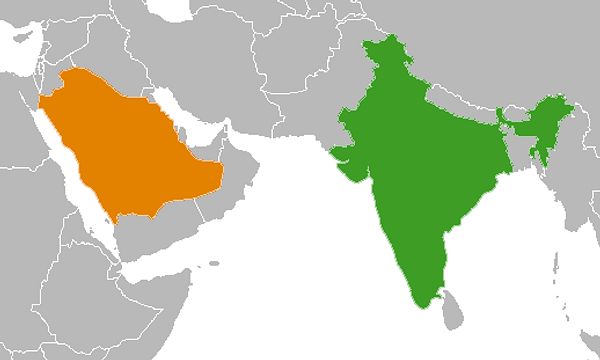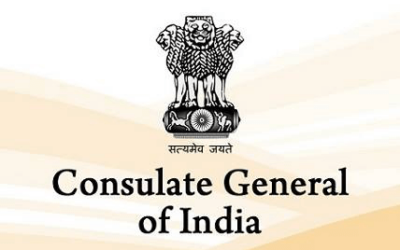Summary
India and Saudi Arabia present dynamic business opportunities in 2024. For Saudi Arabia companies in India, key sectors include IT, healthcare, manufacturing, and renewable energy. India’s skilled workforce and vast market make it a strategic partner for Saudi businesses seeking global expansion.
India and Saudi Arabia, the two biggest economies in their respective regions, have embarked on a close diplomatic and business relationship in recent years. Rising trade and investment, business partnerships, and strategic cooperation characterize the growing bond between the two countries.
With the progressive relationship between the two countries, the Indian Prime Minister (PM) Narendra Modi said, “For India, Saudi Arabia is one of its most important strategic partners … we have identified several initiatives to take our partnership to the next level.” It was the opening line of Modi’s speech in a bilateral meeting in New Delhi on September 11, 2023, when Saudi Arabia Crown Prince Mohammed bin Salman Al Saud visited India for three days.
Today, New Delhi and Riyadh collectively work towards their common vision for economic growth and development alongside strategic defense and security partnerships. Being G20 members, India and Saudi Arabia often held bilateral talks as a sideline meeting at the G20 leaders’ summits. At the G20 summit in September 2023, Saudi Crown Prince Salman visited India and signed various Memorandum of Understanding (MoUs) to boost bilateral trade and business cooperation. Also, the summit laid the foundation for the India-Middle East-Europe Corridor to promote economic cooperation and inter-regional connectivity.
With the closer ties economically between the two countries, the blog explores numerous business opportunities for Saudi companies in India aiming to expand their business or set up a remote team in India. It explains several avenues for Saudi businesses to collaborate and partner across various sectors in India.
A Brief History of the India-Saudi Relationship
The historical ties between India and the Kingdom of Saudi Arabia date back centuries through trade connections, especially oil. As connected by the Arabian Sea, the sea routes help develop various trade links, cultural exchanges, and economic relationships between India and the kingdom. As a result of the close connection, the India-Saudi relationship turned into a high-level bilateral tie when His Excellency, King Saud visited India in 1955. A “new era” in the India-Saudi relationship began when top leaders of both countries signed the Delhi Declaration in 2006.

As per the agreements, both sides aimed to strengthen their cooperation in various fields, including defense & security, trade & investment, and business partnerships.
Several government-to-government pacts and MoU agreements were signed between the leaders in the following years to expand their partnerships. In 2019, Crown Prince Salman made his first state visit to India, which led to the inception of the Strategic Partnership Council (SPC). The prince’s visit has further boosted business cooperation and investment opportunities in energy, construction, infrastructure, tourism, and hospitality between New Delhi and Riyadh.
India-Saudi Trade and Investment
In 2022-2023, India stood as the second-largest trading partner of Saudi Arabia. The Kingdom was New Delhi’s fourth-largest trading partner after the US, Japan, and China. The bilateral trade for the year crossed USD 52 billion, as reported by the Arab News. Although oil & energy dominate their bilateral trade, New Delhi and Riyadh are gradually expanding their trade and investment beyond crude oil and petroleum products.
With the widening scope for India-Saudi Arabia investment, Saudi Arabia companies keep an eye on the Indian market for various business opportunities and vice-versa. In 2023, about 2,900 Indian companies have bases in the Kingdom. Tata Consultancy Service, Tata Motors, Larsen & Toubro, WIPRO, Infosys, SBI, and Air India are some key Indian companies operating in Saudi Arabia.
On the other hand, Saudi Aramco, SABIC, Alfanar Energy, Public Investment Fund (PIF), and Zamil Air Conditioners are major Saudi Arabia companies operating in India. Saudi’s investment in India has expanded significantly across various economic sectors, like sports, agricultural chemicals, and logistics. As reported in December 2023 by Bloomberg, Saudi Arabia has shown interest in Indian cricket and wanted to invest around USD 5 billion in the Indian Premier League (IPL).
Saudi’s key investors and sovereign wealth funds, including Aramco and SABIC have invested several billion dollars in Indian start-ups like OYO, Paytm, Delhivery, Grofers, and Ola in support of Saudi’s ambitious plan, “Vision 2030 Projects”.
Business Opportunities for Saudi Arabia Companies in India
Today, India has emerged as one of the most attractive destinations for business opportunities across various sectors due to reducing tariff barriers and enhancing business facilities. Saudi Arabia companies in India can leverage such advantages and explore investment opportunities in the following sectors.
- Petrochemical: Saudi Arabia is one of India’s largest suppliers of crude oil and petrochemical products. India offers various opportunities for Saudi businesses related to oil and gas exploration, petrochemical and polymer plant designing, refining, pipeline, and LNG projects.
- Renewable energy: Focusing on sustainable energy sources and clean technologies, India offers various opportunities for joint ventures, technology transfer, and investment. Saudi businesses can look for investment opportunities in Indian solar power, wind energy, and green hydrogen projects.
- Infrastructure development: India has various large-scale projects for infrastructure development and plans such as Smart Cities, Make in India, etc. These are significant opportunities for Saudi companies in construction, engineering, and project management.
- Information technology and digital transformation: India’s ambition for a thriving IT industry and increasing transformation in digital technologies offer various business collaborations and partnerships. Saudi companies can tap into such opportunities related to software development, IT services, cybersecurity, and digital transformation consulting.
- Tourism and hospitality: India’s growing tourism industry presents opportunities for Saudi companies to invest in hospitality, leisure, and tourism-related ventures. New Delhi offers various business collaborations in hotel development, hospitality services, tourism infrastructure, travel services, etc.
- Agribusiness and food processing: With its increasing demand for processed foods and expanding agribusiness, India offers investment opportunities for Saudi businesses related to food processing and agricultural technology providers. Partnerships in food processing, packaging, and distribution can cater to India’s growing urban population and changing dietary preferences.
Additionally, India presents numerous business opportunities for Saudi Arabia companies in industries such as pharmaceutical & healthcare, banking & financial services, manufacturing & construction, logistics & transportation, and telecom & connectivity.
Above all, India remains a leading oil importer globally due to the rising level of energy consumption. Saudi Arabia is India’s major energy supplier, and India imports around 17% of crude oil from the Kingdom annually. India’s conglomerate giant Reliance Industries (RIL) and Saudi Aramco talked about a USD 15 billion deal, which was later put on hold. Saudi Arabia can capitalize on India’s growing energy demands and expanding petrochemical industry.
Availability of Indian Skills and Resources for Saudi Companies
Looking at the impressive demographic dividend and abundant availability of skillful talent, India is one of the top targets for hiring remote professionals. Also, India’s strategic location is another key factor that helps easy access to the markets of neighboring countries and regions.
The presence of over 2.6 million Indians working in Saudi Arabia plays a crucial role in fostering people-to-people connections and spurring business ties. Opening up business opportunities in non-oil sectors in the India-Saudi bilateral relationship further boosts the demand for service sectors.
The large availability of India’s remote workforce attracts Saudi businesses looking to build a remote team or establish a physical presence in the Indian market.
India presents enormous opportunities for research and development (R&D) across industries, including medical research & drug discovery, engineering, and designing services. New Delhi boasts a large talent pool with expertise in various fields, such as IT, engineering, oil and energy, finance, and healthcare, which can support Saudi Arabia companies in expanding their operations and achieving their business objectives in India.
Conclusion
Over the years, the India-Saudi relationship has evolved remarkably, cemented by mutual interests and cooperation. The increasing economic ties between India and Saudi Arabia offer numerous trade and investment opportunities for the business communities of both countries. India’s ease of doing business policies, robust regulatory framework, and supportive government initiatives make it an attractive destination for foreign investment and business expansion.
Today, new Delhi and Riyadh are collectively working towards strategic interests and business cooperations that push their relationship to a new height. Observing the progressive nature of their bilateral economic cooperation, the Indian Commerce and Industry Minister Piyush Goyal said, that India and Saudi Arabia looked forward to doubling their bilateral trade to USD 100 billion soon.
Observing India’s strong economy, demography, and geopolitical positions, it’s a wise option for Saudi companies to enter and explore business opportunities in India. In a nutshell, impressive economic growth, cost-efficient business operations, and availability of skilled talent attract Saudi businesses to Indian business opportunities.




 Schedule a free call
Schedule a free call